Theme: Creating Inclusion and Diversity in Higher Education
Conference Dates: Wednesday 28th June to Friday 30th June 2017
Location: Paisley, Scotland
Venue: University of the West of Scotland (UWS), Paisley Campus
CLICK HERE TO SEE CONFERENCE FLYER
Proposal Submission Window: Opens on 31st October and closes on 31st December 2016
CLICK HERE TO SUBMIT YOUR CONFERENCE PROPOSAL
Keynote Speakers
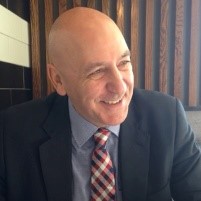
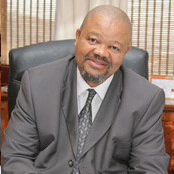
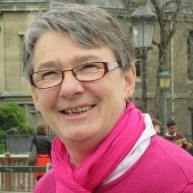
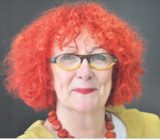 Dame Ruth Silver is the Founding President of the Further Education Trust for Leadership (FETL). She was the founding Chair of the Board of the Learning and Skills Improvement Service in October 2008 and chaired both the Board and the elected LSIS Council. In 2010, she was appointed by the Government to chair the National Taskforce on the Future of the Careers Profession. She is a Trustee of the Jamie Oliver Foundation and a member of the Baker Dearing Trust for University Technical Colleges. See http://www.fetl.org.uk/blog/fetl-president-dame-ruth-silver-to-chair-widening-access-commission/
Dame Ruth Silver is the Founding President of the Further Education Trust for Leadership (FETL). She was the founding Chair of the Board of the Learning and Skills Improvement Service in October 2008 and chaired both the Board and the elected LSIS Council. In 2010, she was appointed by the Government to chair the National Taskforce on the Future of the Careers Profession. She is a Trustee of the Jamie Oliver Foundation and a member of the Baker Dearing Trust for University Technical Colleges. See http://www.fetl.org.uk/blog/fetl-president-dame-ruth-silver-to-chair-widening-access-commission/
[tabs]
[tab title=”Overview” active=”yes”]
Overview
The International Higher Education Teaching and Learning Association (HETL) and The University of the West of Scotland (UWS) invite you to attend the 2017 International HETL –UWS Conference, to be held in Paisley, Scotland. Paisley is just minutes from Glasgow Airport and Glasgow, the largest city in Scotland and one of the largest in the United Kingdom.
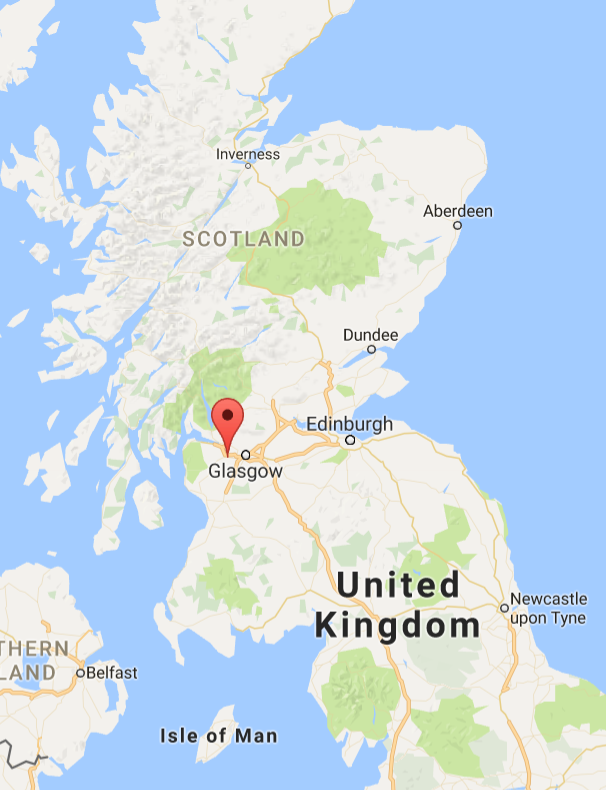
Scotland provides a great backdrop for the 2017 International HETL –UWS Conference. UWS is a public university with four campuses in south-western Scotland. Scotland, and UWS in particular, has a rich, diverse history. Scotland played an integral part in the development of the Industrial Revolution, and the town of Paisley was renowned for thread weaving.

Temperature in June should be around 18° C (65° F), an ideal climate for traveling and seeing some of the sites of Glasgow and surrounding areas. Glasgow and Scotland offer many attractions: http://www.glasgowsleadingattractions.co.uk/attractions/ and http://scotlandwelcomesyou.com/scottish-attractions/.
About the Theme
HETL and UWS invite you to submit a proposal. At the conference, you will have the opportunity to explore new developments in inclusion and diversity in higher education with colleagues from around the world.
Higher education institutions around the world seek to move beyond widening access agendas and towards integrating inclusion into all aspects of the educational experience. This involves creating a more inclusive teaching and learning environment that better enables all students and faculty to more fully develop cognitively, socially, emotionally, and professionally, while respecting their individual and group identities. As Patrick Blessinger notes in, Creating a culture of inclusion in higher education, “The calls for more inclusive educational environments are not only concerned about widening participation but the calls are equally concerned about reorienting the mission, vision and values of educational institutions to better align them with core democratic principles.”
The Higher Education Academy defines an inclusive teaching and learning culture as one that “enables all students to develop academically, professionally and personally to fulfil their potential.” UWS defines inclusion as “an engaging teaching and learning culture in which all students, supported by staff, can participate and achieve their full potential.”
To create a more inclusive and diverse university culture, UWS pursues three broad aims: 1) to embed the vision for an inclusive culture into UWS learning, teaching and assessment strategy; 2) to explore the distance or ‘gap’ between existing UWS policy/strategy in inclusion, and current practices; and 3) to identify ways to bridge this ‘gap’.
Thus, inclusion and diversity entails the transformation of institutional policies, structures, and activities in order to maximize the diverse talents, backgrounds, and perspectives of all students, faculty, administrators, and staff.
It’s More Affordable than You May Think
Scotland is an ideal location making travel from many locations convenient. The conference organizing committee has worked hard to provide a venue that is affordable to attend. Scotland makes an ideal backdrop to participate in presentations and workshops by leading scholars and faculty, distinguished international speakers, as well as informal networking and dialogue with colleagues from around the world. Please join us – we look forward to seeing you in Scotland!
[/tab]
[tab title=”Team”]
About HETL
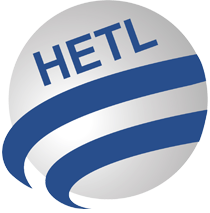 The International Higher Education Teaching and Learning Association (referred to as HETL) is a certified non-profit organization in the State of New York (USA) with headquarters in New York City. HETL’s scope is international with a global membership. HETL works with and supports individual educators, as well as all types of educational institutions, associations, centers, and other groups interested in improving teaching and learning in higher education.
The International Higher Education Teaching and Learning Association (referred to as HETL) is a certified non-profit organization in the State of New York (USA) with headquarters in New York City. HETL’s scope is international with a global membership. HETL works with and supports individual educators, as well as all types of educational institutions, associations, centers, and other groups interested in improving teaching and learning in higher education.
The long-term vision of HETL is to improve educational outcomes in higher education by creating new knowledge and advancing the scholarship and practice of teaching and learning. To bring that vision to reality, the present mission of HETL is to develop a global community of higher education professionals who come together to share their knowledge and expertise in teaching and learning. To effectively fulfill that mission, HETL adheres to the values of academic integrity-ethics, collegiality-collaboration, and inclusion-diversity. As such, HETL supports academic and pedagogical pluralism as well as practices that promote sustainable learning.
About University of the West of Scotland
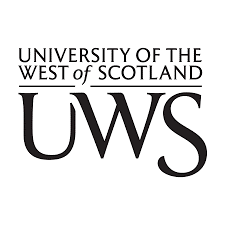 With origins dating back to 1897, UWS is one of Scotland’s most innovative modern universities. The four UWS campuses cover the west and south-west of Scotland in Ayr, Dumfries,Hamilton and Paisley, as well as a new campus inLondon.
With origins dating back to 1897, UWS is one of Scotland’s most innovative modern universities. The four UWS campuses cover the west and south-west of Scotland in Ayr, Dumfries,Hamilton and Paisley, as well as a new campus inLondon.
The University occupies an integral position within Scotland’s proud tradition of excellence in education. Offering career-focused and vocationally-relevant provision, UWS graduates are equipped with relevant skills to make an immediate contribution to industry, business, public and third-sector organizations. Paisley is Scotland’s largest town and is a lively place to be. Originally famous for its weaving and thread industries – most notable for the world-famous Paisley pattern – Paisley combines heritage and history with all the facilities you’d expect from Scotland’s largest town. Paisley offers an array of cafes, bars, restaurants and clubs while activities such as golfing, cycling, ice-skating and swimming will appeal to active types.
Committee Structure
Scientific Committee (responsible for management of abstract submissions, review process, program and track management)
Local Organizing Committee (responsible for delegate registration, conference finance, venue and social program co-ordination)
Conference Chair: Professor Paul Martin
Conference Secretary: Dr Patrick Blessinger
Conference and Event Management: UWS Events Team
Scientific Committee Members: see below
Local Organizing Committee Members: see below
Local Organizing Committee
- Professor Paul Martin, Depute Principal
- Marcella Kean, Depute Director of Learning Innovation
- David Johnstone, Depute Director, ITDS
- David Kyle, Head of Marketing and Brand
- William McCallum, Senior Facilities Manager, Estates Solutions
- Matt Gilmour, Conference and Events Manager
- Louisa Sheward, Senior Lecturer, Learning Innovation
- Linda Aitken, Executive Assistant to Depute Principal
Scientific Committee
UWS Representatives:
- Dr Neil McPherson, Assistant Dean, Education, School of Media Culture and Society
- Dr Maria Pollard, Assistant Dean, Education, School of Health Nursing and Midwifery
HETL Representatives:
- Dr Patrick Blessinger, Chair of Scientific Committee; HETL Director and Chief Research Scientist; Adjunct Associate Professor of Education, St. John’s University, NYC; Educator with New York State Education Department
- Professor Lorraine Stefani, HETL President; Professor of Higher Education Strategic Engagement, The University of Auckland, New Zealand
- Professor Mandla Makhanya, HETL Vice President; Principal and Vice Chancellor, The University of South Africa (Unisa)
[/tab]
[tab title=”Tracks”]
This conference will explore various ways to enhance and transform teaching and learning through meaningful inclusion and diversity policies, programs, and activities. This conference will explore how higher education institutions can create inclusive and diverse cultures of teaching and learning. This conference will cover a wide range of research and perspectives on inclusive teaching practices, curricular activities, assessment methods and related areas.
Conference Tracks:
All submitted proposals will be blind peer reviewed by referees to ensure academic quality and appropriateness of the proposal topic.
Track 1: Inclusion and Diversity in Teaching and Learning Activities
Possible topic areas under this track may include: inclusive service learning in local communities, inclusive research in human, social, economic, and environmental sustainability, democratic engagement for local and global citizenship, social action in inclusion, changing professional identities for faculty, student identity development for inclusive learning environments, cultivating student learning communities for inclusion and diversity, integrating inclusive activities into teaching practices as a pathway for meaningful and high impact learning, cultivating faculty learning communities for inclusion and diversity, and connecting coursework to inclusion and diversity.
Track 2: Inclusion and Diversity in Institutional Leadership
Possible topic areas under this track may include: integrating inclusion and diversity into the institutional mission and vision, creating an institutional culture and infrastructure for inclusion and diversity, and developing institutional executives and administrators as inclusive leaders.
Track 3: Inclusion and Diversity in University-Community Partnerships
Possible topic areas under this track may include: inclusive strategic planning to bridge the divide between campus and community, using social media and technology as a tool for campus and community collaborations, forging strategic partnerships with industry, government, and NGOs for a more inclusive and diverse society.
Tentative Conference Session Types
This conference will have presentations in roundtable (panel) discussion format and interactive workshop format as well as a poster session.
- Intimate Discussion Panels. Each discussion panel will consist of about five or six panel members (presenters). Each panel will last 60 minutes and is a more intimate discussion format where each presenter will give a brief presentation (about 8 minutes for each presenter) followed by an in-depth Q & A discussion by all presenters and audience members. To aid their oral presentation, presenters may use computers and projectors (will be made available), or they may distribute summary hardcopy handouts of key points (must bring your own), or they can just deliver an oral presentation without any aids. The following format will be used:
Part I: 45 minutes, panel statements (presentations) by panel members
Part II: 15 minutes, questions from audience for panel members and interactive discussion between panel and audience - Interactive Workshops. A limited number of 60 minute workshops will be available during the conference. For the workshops, the structure is open – the workshop presenter decides what format to use within the allotted 60 minutes.
- Poster Sessions. Poster sessions will last 60 minutes. Presenters discuss their poster with conference attendees who are viewing their poster. Easels will be provided. Posters should not exceed the size of 3 feet x 4 feet. Form boards will be available to hang posters on. Presenters need to ensure that posters are readable and easy to follow and make their points concisely and clearly. For tips on how to create a poster, see for example: https://www.csun.edu/plunk/documents/poster_presentation.pdf and http://www.dartmouth.edu/~ugar/undergrad/posterinstructions.html.
[/tab]
[tab title=”Travel/Lodging”]
TBD
[/tab]
[tab title=”Attractions”]
TBD
[/tab]
[tab title=”Sponsors”]
TBD
[/tab]
[tab title=”FAQs”]
[tab]
Where will the conference activities be held?
All conference activities (sessions, meals, etc) will be held at the University of the West of Scotland in Paisley, Scotland as well as Paisley Town Hall. A detailed conference schedule/program will be emailed to all delegates prior to the conference.
What does the conference registration fee cover?
The conference registration fee covers the following items:
– allows you to participate in all conference activities for the three day conference
– if your proposal was accepted, you will present your proposal during one of the conference sessions
– if your proposal was accepted, your proposal will appear in the conference proceedings (electronic version)
– if your proposal was accepted, you may submit a full paper for possible publication in our journal
– if you submitted a full paper, opportunity to win best paper or other awards
– access to all conference and keynote sessions
In addition, the fee covers the following:
– VAT
– access to all conference and keynote sessions
– conference catering
– welcome reception at Paisley Town Hall
– option to purchase a ticket for the Conference Dinner
– transport to and from the Conference Dinner Venue
– option to book on-site residential accommodation at reduced conference rate
– conference delegate pack and materials
Note: delegates are of course responsible for their own airfare/travel costs and lodging costs. Delegates are also responsible for arranging their own visa travel approvals, if applicable
I reside outside Scotland, can HETL or UWS help me secure a visa to enter the venue country?
We do not get directly involved in the visa application process. If you reside outside the conference venue and you will be attending the conference, it is your responsibility to determine what the visa requirements are, if any, for your particular country. If your proposal has been accepted, we will only provide you with a “letter of invitation” to attend the conference. The “letter of invitation” is not a legal document and it does not by itself grant you permission to enter the venue country but you may use it to help you secure a visa if your country requires that you get visa approval one before departure. You should contact the appropriate government agency in your particular country to determine your country’s visa requirements.
How do I make air travel arrangements? Can HETL help with that?
Each conference participant is responsible for making their own airline reservations and paying for their own airline tickets. Airfares may vary greatly from city to city and depending on the travel dates so it is advisable to not wait until the last minute to book your tickets. We suggest you plan early and look into airline departure and return dates/times and airfares as soon as possible. It is advisable to purchase refundable tickets if available in case of a personal emergency that would prevent you from attending the conference.
Which hotel should I stay at while in Paisley?
Each conference participant is responsible for making their own hotel reservations and paying for their lodging.
What about a car rental?
If you wish to rent a car while at the conference, each conference participant is responsible for making their own car rental reservations and paying for their car rental fees.
Will an early-bird or discounted registration fee be offered?
See the registration fee dates on the conference web page.
Will a book of proceedings be published?
Yes. All presentation abstracts will appear in the proceedings (electronic only).
Will full papers be accepted for possible publication?
Any presenter may submit a full paper but full paper submissions are optional. All full papers submitted will go through the normal double-blind refereed review process and the best papers will be accepted and published in a special issue(s) of our journal(s). For the special issues published from our last conference, see http://www.emeraldinsight.com/journals.htm?issn=2050-7003&volume=5&issue=2
[/tab]
[/tabs]
Tentative Summary Conference Schedule
TBD
Who should attend?
Representatives from all countries and from institutions of all types and missions, including:
- Higher education faculty members and scholars from all disciplines
- Higher education leaders (executives, deans, directors, chairs)
- Representatives from government and NGOs working with higher education institutions
- Graduate students preparing to become professional educators – we welcome joint proposals from graduate students and their faculty mentors/advisors
- Instructional technologists, course designers, and faculty developers
Conference will be limited to 300 delegates to ensure quality programming.
Tentative Timeline
| Call for Proposals Distributed: | October 31, 2016 |
| Deadline for Proposal Abstracts: | Dec. 31, 2016 |
| Proposal Review Period: | Jan. 5 – Jan. 31, 2017 |
| Decisions Delivered: | Feb. 10, 2017 |
| Early Bird Registration: | Feb. 15, 2017 |
| Regular Registration: | Mar. 15, 2017 |
| Deadline for Full Papers (full papers are optional): | Apr. 10, 2017 |
| On-site Registration: | June 28, 2017 |
Fees
| Early Bird Registration: | £330 |
| Regular Registration: | £400 |
| On-site Registration: | £450 |
| Full-time Graduate Students: | £150 |
No refunds will be given once you pay your registration fee – no exceptions.
All fees include:
- VAT
- access to all conference and keynote sessions
- conference catering
- welcome reception at Paisley Town Hall
- option to purchase a ticket for the Conference Dinner
- transport to and from the Conference Dinner Venue
- option to book on-site residential accommodation at reduced conference rate
- conference delegate pack and materials
Note/Disclaimer: delegates are of course responsible for their own airfare/travel costs and lodging costs. Delegates are responsible for arranging their own visa travel approvals, if applicable. Delegates are responsible for having their own medical and travel insurance – HETL and UWS are not liable for any injuries that occur to delegates during the conference.
Proposal Submissions Form
As with any academic abstract, your 500 word presentation proposal should clearly and concisely describe the purpose of your presentation, the method(s) used, the results/findings, and the conclusion/implications. All submitted proposals will be peer-reviewed by a screening committee (i.e., The Scientific Committee) to ensure academic quality and appropriateness of the proposal topic. Selected proposals will appear in the conference proceedings (book of abstracts). Selected proposals will be required to submit a final 250 word presentation abstract to appear in the proceedings.
